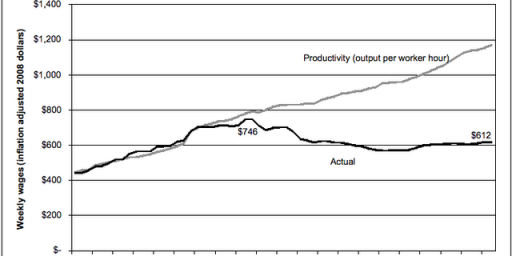Time Card Fraud
NYT Altering of Worker Time Cards Spurs Growing Number of Suits [RSS]
Experts on compensation say that the illegal doctoring of hourly employees’ time records is far more prevalent than most Americans believe. The practice, commonly called shaving time, is easily done and hard to detect — a simple matter of computer keystrokes — and has spurred a growing number of lawsuits and settlements against a wide range of businesses.
***
Compensation experts say that many managers, whether at discount stores or fast-food restaurants, fear losing their jobs if they fail to keep costs down.
“A lot of this is that district managers might fire you as soon as look at you,” said William Rutzick, a lawyer who reached a $1.5 million settlement with Taco Bell last year after a jury found the chain’s managers guilty of erasing time and requiring off-the-clock work. “The store managers have a toehold in the lower middle class. They’re being paid $20,000, $30,000. They’re in management. They get medical. They have no job security at all, and they want to keep their toehold in the lower middle class, and they’ll often do whatever is necessary to do it.”
Another reason managers shave time, experts say, is that an increasing part of their compensation comes in bonuses based on minimizing costs or maximizing profits.
“The pressures are just unbelievable to control costs and improve productivity,” said George Milkovich, a longtime Cornell University professor of industrial relations and co-author of the leading textbook on compensation. “All this manipulation of payroll may be the unintended consequence of increasing the emphasis on bonuses.”
The piece is entirely anecdotal, so it’s unclear how prevalent the practice is. Indeed, it’s not suprising that there are would be instances of unscrupulous conduct on the part of store managers at large chains. Obviously, people doing this should go to jail and, if there is in fact a corporate policy encouraging this, the consequences should be severe.






James,
Good article. As someone who worked those types of jobs (as a worker not management); I always knew how many hours I worked. Whether it was an old fashioned paper timecard or a computerized one, I knew what my compensation would be. At the Taco Bell/McDonalds level of work the rise of cheap labor is a double-edged sword. As a worker of that level, I am completly replaceable but I can always go to another fast food/Wallmart as well. Their need for worked (employee turnover at over 80% a year) means that finding people is both easy and difficult. It is easy finding someone but it is harder to find someone both trustworthy and trainable.
Where I see the problem is not so much at the hourly worker level but the junior management. There the pressure is to undereport your hours (usually working 40-60 a week) for the eventual shot at making store manager. Usally the asst. managers are still hourly employees but want to be more.
While it may be wholly anecdotal, this type of activity is not something that’s spelled out in surveys for the government. I suspect it’s become more prevalent these days. When I was working in the fast food-retail field, we were just told that we didn’t work more than X hours because doing so would make us full-time, and of course, anything above 40 would be OT, and there was no way in hell they were going to pay OT. So if we were at the end of the week and approaching OT, we were sent home. That was 20 years ago.
—